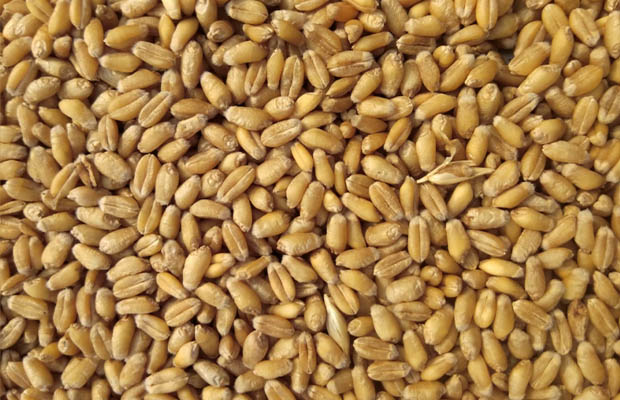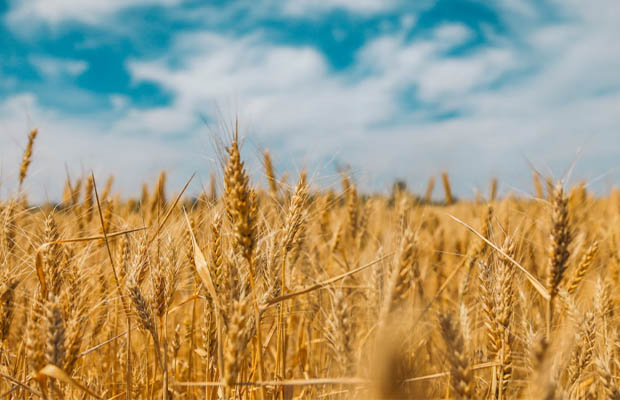Raw wheat grains are ground into a fine powder to create wheat flour, also known as all-purpose flour. Before being transformed into flour, the grains are not heated to a high temperature. It implies that wheat flour may be contaminated with bacteria like salmonella or E.
Can we eat raw wheat? Wheat can be consumed raw; however, consuming excessive amounts of raw wheat can result in a number of diseases.
The question “can you eat raw wheat?” will be addressed in this short article.”. We’ll also talk about the advantages of eating wheat and the dangers of eating it raw.
Table of Contents
Can You Eat Raw Wheat?
Although eating too much raw wheat can cause a number of diseases, it is possible to eat it raw. Wheat is a great source of fiber, vitamins, and minerals.
Consuming both refined and unrefined whole wheat is not harmful and, in fact, is healthier because all of the nutrients are retained.
Raw Wheat: Healthy Or Not?
Contrarily, wheat has shown to have a number of health advantages, including a reduced risk of diabetes, heart disease, cancer, and obesity. Wheat is necessary for a number of bodily functions and is a source of energy for the body.
Wheat that is prepared in a healthy way, without excessive oil or sugar, is not bad for one’s health. Numerous diets, such as the Mediterranean diet and the My Plan diet recommended by the US government, recommend including wheat as a staple in the diet.

Benefits Of Eating Raw Wheat
In addition to being enriched with minerals and fiber, whole wheat also contains a number of essential nutrients, such as:
A type of carbohydrate known as fiber aids in digestion.
Examples of vitamins include vitamin B, niacin, thiamine, and folate.
Minerals include magnesium, manganese, phosphorus, zinc, and iron.
Proteins contain phytic acid, ferulic acid, and sulfur compounds among other antioxidants.
Plant chemicals called polyphenols, stanols, and sterols help to ward off a number of diseases.
The risk of heart disease and problems is reduced by 22& when 28 grams of whole grains are consumed daily.
When compared to people who consume less wheat, daily wheat consumers had a 14% lower risk of developing stroke.
Because fiber-rich diets promote early satiety (fullness), which prevents overeating, the risk of obesity is also decreased. As a result, choosing a diet high in fiber is advised in order to lose weight.
Because wheat is high in fiber, it helps with weight management and prevents obesity, both of which are risk factors for developing diabetes. Mg, a grain rich in minerals, supports the body’s metabolization of carbohydrates.
The fiber in wheat can help with digestion by increasing the volume of the stool, preventing constipation, and helping to get rid of any bad bacteria that may be present in the gut.
Additionally, wheat can help lessen the effects of chronic inflammatory diseases.
By increasing blood sugar levels, impairing immunity, preventing the absorption of essential minerals, and agitating our intestines, raw wheat aggravates health problems.
Can Eating Raw Wheat Be Dangerous?
The consumption of raw wheat does not present a risk to the consumer. The presence of chemicals or the environment in which it grows determines whether it is safe to eat or not.
Like all foods grown outdoors, grains are produced in fields where they may be contaminated by dangerous bacteria like Salmonella when nearby animals heed nature’s call.
In 5176 samples of wheat taken from grain elevators between 2012 and 2014, 1.23 percent of them contained salmonella, according to research.
E. coli was discovered in 0.4% of the samples.
It’s a good thing that cooking destroys foodborne bacteria.
We’ve already talked about how gluten can be harmful to people, but wheat also has a number of potential negative effects, such as allergens and antinutrient content.
What Occurs When You Eat Too Much Wheat?
Your intestines may become overworked if you consume too much wheat. they have to work more to digest & this might lead to digestive problems such as gas, retention of water/bloating, etc. In order to achieve this, it is crucial to eat a well-balanced diet that contains wheat in moderation.
Is Gluten Present In Wheat?
The protein known as gluten, which is ostensibly found in wheat grains, has made many people forget about other people.
Unless they have celiac disease, IBS, or another autoimmune disorder, most people are not adversely affected by gluten in comparison to other proteins. an inflammatory bowel syndrome, or allergic to gluten, or if they can’t handle gluten and need to eliminate gluten so that their abdominal discomfort is relieved or other symptoms affiliated with illness are uplifted.
Because people who cut back on or give up wheat in their diets avoid consuming too many calories from junk food like pizza, chips, candy, and other junk food, gluten-free and wheat-free diets have become more and more popular. Because of this, people mistakenly think that gluten-containing foods and wheat are bad for their health, and feel healthier and lose weight.
Is Eating Wheat Harmful To You?
For the majority of people, wheat is not bad.
Fiber, vital vitamins, and minerals can all be found in wheat. Both unrefined and refined whole wheat are beneficial to your health, but whole wheat is better because it contains all of the nutrients. Foods like wheat, rye, and barley that contain gluten are crucial for good health. Wheat contains a protein called gluten, which has recently led to some people avoiding wheat and other grains. But aside from a small percentage of people with diseases like celiac disease, inflammatory bowel syndrome (IBS), or gluten allergies, and people who cannot tolerate gluten and must eliminate it from their diet to alleviate abdominal pain and other symptoms related to their condition, gluten is not harmful.
Wheat-free or gluten-free diets have gained popularity because those who limit or eliminate wheat from their diet also avoid the extra calories found in snacks, pizza, and other junk food items. People are feeling better and losing weight as a result, which leads them to believe falsely that wheat and foods containing gluten are unhealthy. On the other hand, it has been discovered that wheat has a number of health advantages, including a decreased risk of diabetes, heart disease, cancer, and obesity. Wheat is fuel for the body and is necessary for a number of bodily processes. Wheat preparations that are healthy and don’t contain excessive amounts of sugar or oil are not harmful to your health. Many diets, including the Mediterranean diet and the MyPlan diet advised by the US government, advise including wheat as a necessary component of the diet.
Can You Eat Raw Oats?
Raw oats are nutritious and safe to eat. They could help you lose weight, lower your cholesterol, and blood sugar, and improve the condition of your heart and gut because they contain a lot of the soluble fiber beta-glucan. Adding them to your diet is also simple. To improve digestion and nutrient absorption, just remember to soak them first.
Read More: How Long Does Brown Rice Last?

